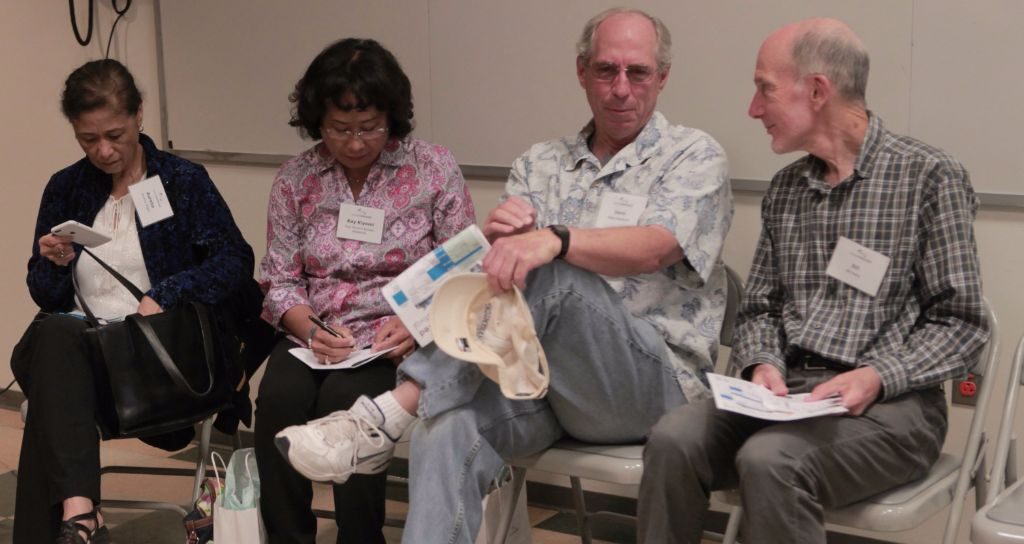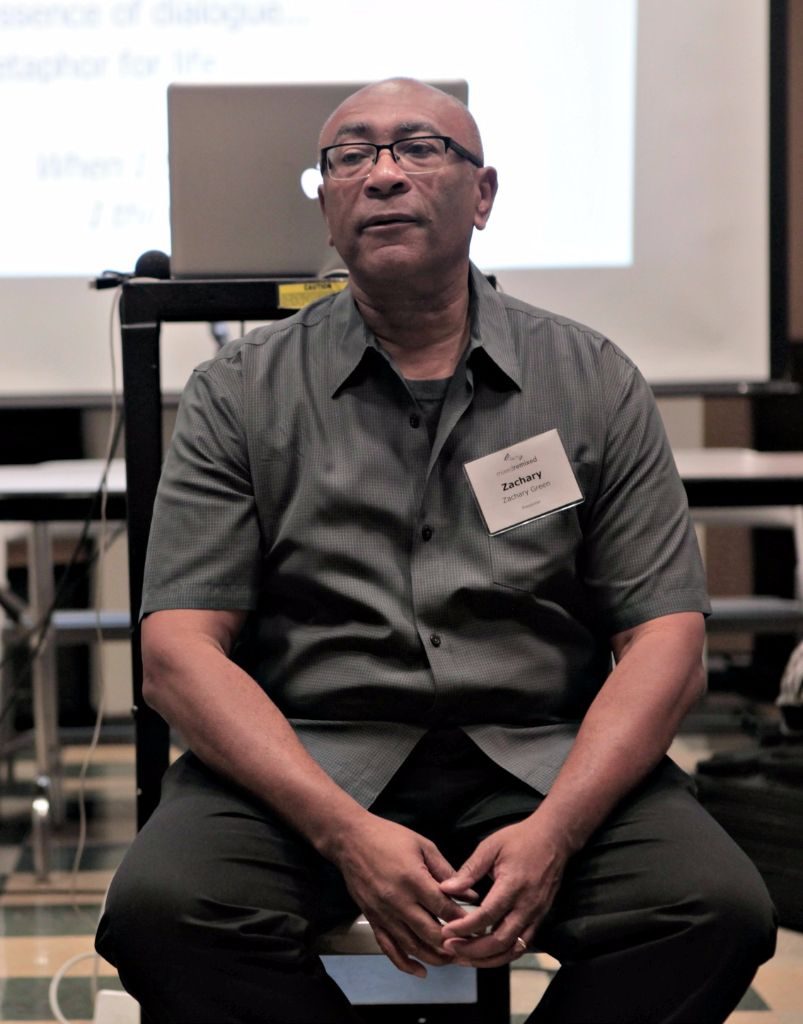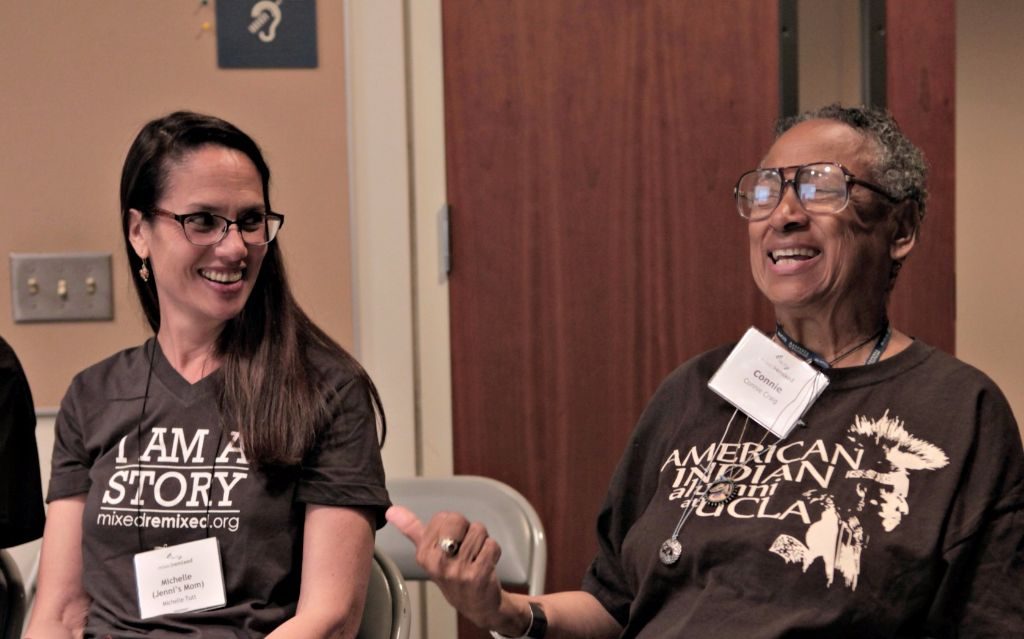Multiracial and Mixed-Race Festival Attendees Share Their Own Stories
The I Have a Story in Me workshop at the 2016 Mixed Remixed Festival was about using writing as a tool for self-exploration and the building of interpersonal bonds within a community. The workshop was facilitated by author and life coach Angelo Lewis, and Zachary Green, professor in Leadership Studies at the University of Maryland. Educator S.Y. Bowland was unable to attend in person, but did join via video link.
The workshop opened with a community building exercise that began with everyone introducing themselves to the group, then agreeing to a set of rules about listening to, and interacting with one another. These rules, to which we were each explicitly asked to consent, formed the foundational cultural norms for the newly formed “community” within the room.
 Next was a free-writing exercise, the prime directive being “write, don’t think.” The assignment was to write about something we’ve read that significantly impacted us.
Next was a free-writing exercise, the prime directive being “write, don’t think.” The assignment was to write about something we’ve read that significantly impacted us.
(I wrote about an an essay by Gerald Vizenor from I Tell You Now, Autobiographical Essays by Native American Writers. This was in the year 2000, long before expressions like “hapa” or concepts like being mixed race had bubbled up into our consciousness. Describing his mixed background, Vizenor refers to himself as “mixedblood.” That was the first time in my life I had found language to describe myself, which, in turn, inspired my first autobiographical essay “Running with the Mixed Bloods.”)
which, in turn, inspired my first autobiographical essay “Running with the Mixed Bloods.”)
The final exercise was an interesting role-playing exercise about dominant versus subservient positions and how social hierarchy influences the ways in which we listen and interpret.
We were divided into groups of three, and in each group we had a dominant player, a subservient player, and a reporter. The subservient players were asked to have a conversation with the dominant player about some topic of concern. In my group, I was the dominant player and the topic of concern was the fact that senior staff members tended to be late to their own meetings, if they showed up at all. And when they did show up they often were on their phone doing something “important.”
This was rude, a waste of people’s time, disrespectful and very, very frustrating to the entire staff.
I repeated what I heard to our reporter, and the results were very similar to that of other groups. The facts I got right, but my version of the conversation completely stripped it of its emotional content. I understood the issue at hand but did not account for the level of urgency and frustration expressed by the subservient player.
 Writing, explained Ms. Bowland, allows us to “suspend the rules” and “figure out a way to question dominance and … respond in a way that is safe.”
Writing, explained Ms. Bowland, allows us to “suspend the rules” and “figure out a way to question dominance and … respond in a way that is safe.”
Ms. Bowland reminded us that we all have a stories to tell and that “the important point is to make sure that the narrative we have is heard.” She closed the workshop by tying the act of writing to the concept of community: “When we write in a community and we can speak and listen to each other, writing becomes a revolution. And that’s where we get the momentum that keeps us moving.”-Michael Maliner, Festival Blogger Twitter @plasticspoon
This is one story in a series about the programs held at the Mixed Remixed Festival 2016. Please read through them all by searching our blog with “2016 Festival Re-Cap.”